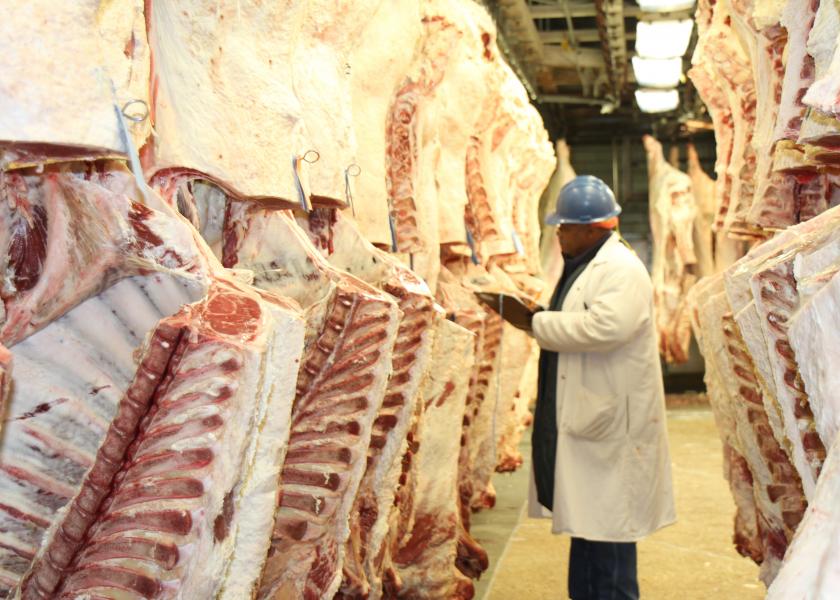USRSB Sustainability Modules For Packers And Processors

The U.S. Roundtable for Sustainable Beef (USRSB) launched additional sustainability modules for companies within the U.S. packer and processor sector.
The sustainability modules series is the first of its kind for the beef industry. These packer and processor sector modules are the fourth set in the series aimed at supporting actions that can improve the sustainability of operations and businesses throughout the entire U.S. beef value chain. This continued effort progresses the USRSB’s mission to advance, support and communicate continuous improvement in sustainability across the U.S. beef value chain.
“The packer/processor modules were developed with input from industry members to specifically address the needs of the sector and to put sustainability concepts into real-world terms for practical implementation,” said Paula Alexander, animal welfare manager at Tyson Foods. “We’re excited to implement these modules at Tyson and encourage packer/processor managers and employees to participate in the modules to assess their role in beef industry sustainability and to add value for their customers.”
The modules, which are based on the U.S. Beef Industry Sustainability Framework, were created to help identify areas for continuous improvement throughout the beef value chain. The interactive series incorporates the USRSB self-assessment tool around key indicators and three levels of metrics to help industry professionals recognize areas where they excel and offer solutions in the areas which need improvement. The on-demand series is free to access and can be taken more than once.
The cow-calf/stocker/backgrounder, feedyard and auction market modules were the first sets developed and are currently available. The final set of sustainability modules for retail/food service are scheduled to be completed in late 2021. For these resources and more visit www.USRSB.org/Resources.







